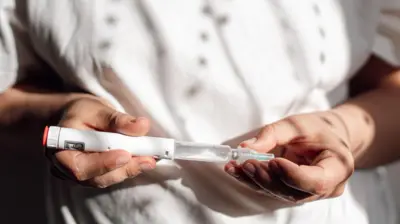We've updated our Privacy and Cookies Policy
We've made some important changes to our Privacy and Cookies Policy and we want you to know what this means for you and your data.
UK should move to one dose of HPV jab for teens
Image source, Getty Images
- Author, Michelle Roberts
- Role, Digital health editor
The UK should move to offering teenagers one shot of HPV vaccine rather than two, experts are advising.
They say there is now enough evidence that one dose provides excellent protection against cancers - mostly cervical cancer - caused by a virus called human papillomavirus (HPV).
Currently, girls and boys are offered a first dose when they are around 11-13, with a second one some months later.
The government will now consider the experts' advice.
It comes from the Joint Committee on Vaccination and Immunisation (JCVI).
"This aligns with recent advice from the , said Dr Vanessa Saliba of the JCVI.
She added that the proof for one dose was "compelling".
"The advice has now been published and we will make sure that we work with the NHS and health partners to support the rollout of any changes to the programme."
In addition to the routine adolescent programme, there is a separate HPV vaccination programme for gay and bisexual men and other men who have sex with men aged up to 45 years, which is delivered through sexual health clinics.
The advice from JCVI on the move to one dose applies to everyone under the age of 25. Over-25s should continue to be offered two doses, it says.
What is HPV?
There are more than 100 different types of HPV and infections do not usually cause any symptoms - although some types can cause warts. These may appear on your hand, foot, genitals or inside your mouth.
It is very easy to pick up, being very contagious, and is spread by close skin-to-skin contact.
Most people, however, will not know they're infected and their bodies will get rid of the virus without treatment.
High-risk types of HPV, on the other hand, can cause abnormal tissue growth which can lead to cancers.
The HPV vaccine protects against the types of HPV that cause nearly all cases of cervical cancer, most anal cancers, and some genital and head and neck cancers.
Studies suggests it is very effective, cutting cases of cervical cancer by nearly 90%.
Top Stories
More to explore
Most read
Content is not available








